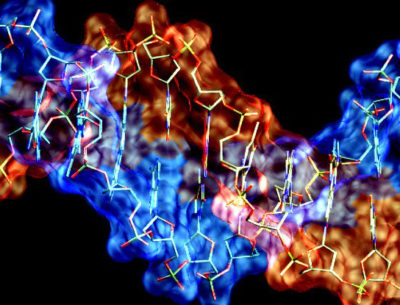 Scientists in origin of life research will assemble next month in Galveston, Texas, for the “Understanding the Origin and Evolution of Life on Earth and the Galaxy” conference hosted by Gordon Research Conferences (GRC), a non-profit organization started in 1931.
Scientists in origin of life research will assemble next month in Galveston, Texas, for the “Understanding the Origin and Evolution of Life on Earth and the Galaxy” conference hosted by Gordon Research Conferences (GRC), a non-profit organization started in 1931.
GRC gives scientists a forum to discuss “frontier research in the biological, chemical, and physical sciences, and their related technologies.” Access to the conference, however, is restricted. Only those sent an invitation can register − not even the press. The conference attendees must agree not to quote anyone. GRC is concealing the origin of life research.
Australian new reporter, Suzan Mazur, concerned about the lack of transparency, published an interview with the conference organizer Steve Benner posted on the Huffington Post, noting:
“So I decided to have a chat with Steve Benner about the upcoming Texas Origins meeting.”
Benner was awarded a doctorate from Harvard University (1979) and is currently a fellow at the Foundation for Applied Molecular Evolution (FfAME) in Gainesville, Florida. He has had a successful career in science. During the interview, a reason for shrouding the evidence emerges – a new direction in research is moving beyond the realm of biological sciences.
“Why has the approach to investigating the origin of life now expanded from one of a sudden transition to one of a series of stages, evolution as a process, before life materializes,” Mazur asked. “It used to be that evolution was discussed once life emerged. I’m actually referring to the recent paper published by authors John Sutherland, Robert Pascal, and Addy Pross, titled ‘Towards an Evolutionary Theory of the Origin of Life Based on Kinetics and Thermodynamics.’ The paper mentions Carl Woese… who told me… the last universal common ancestor, was not anything material; it was a process.”
To Mazur’s question, Benner expounded with a stunning state-of-the-art appraisal of the struggles encountered in the origin of life research –
“We have failed in any continuous way to provide a recipe that gets from the simple molecules that we know were present on early Earth to RNA. There is a discontinuous model which has many pieces, many of which have experimental support, but we’re up against these three or four paradoxes, which you and I have talked about in the past. The first paradox is the tendency of organic matter to devolve and to give tar. If you can avoid that, you can start to try to assemble things that are not tarry, but then you encounter the water problem, which is related to the fact that every interesting bond that you want to make is unstable, thermodynamically, with respect to water. If you can solve that problem, you have the problem of entropy that any of the building blocks are going to be present in a low concentration; therefore, to assemble a large number of those building blocks, you get a gene-like RNA — 100 nucleotides long — that fights entropy. And the fourth problem is that even if you can solve the entropy problem, you have a paradox that RNA enzymes, which are maybe catalytically active, are more likely to be active in the sense that destroys RNA rather than creates RNA.”
Mazur replied, “I think things are shifting to nonmaterial events.”
“That’s right,” Benner countered –
“I think you’re right about that. We have been trying for close to 10 years now to get what we call dynamic kinetic systems, a collection of small molecules interacting with each other, maybe some catalyzing transformations of others, non-linear feedback, some kind of amplification, and trying to find working examples, recipes, where you can actually go back and mix something and see something. We are finding all sorts of problems in getting behavior that we find useful, let alone Darwinian, out of this.”
Planetary scientist at NASA Ames Research Center, Chris McKay, agrees –
“First and most clear, Darwinian selection cannot be responsible for the origin of life. Secondly, there is some thought that Darwinian selection cannot fully explain the rise of complexity at the molecular level.”
After more than three decades, not much has changed. Francis Crick, Nobel Prize winner for co-discovering the DNA molecule, opined in his book Life Itself: Its Origin and Nature,
’An honest man, armed with all the knowledge available to us now, could only state that in some sense, the origin of life appears at the moment to be almost a miracle, so many are the conditions which have to be satisfied to get it going.”
Even the executive director of the National Center for Science Education (NCSE), Eugenie Scott, acknowledged in Evolution vs. Creationism (2013) –
“Currently, there is not yet a consensus about how these first living things originated.”
There are good reasons for concealing the origin of life research. Paul Davies, a theoretical physicist, cosmologist, and astrobiologist of Arizona State University, explains –
“You might get the impression from what I have written not only that the origin of life is virtually impossible, but that life itself is impossible…so what is the answer? Is life a miracle after all?”
Genesis
The scientific evidence is compatible with the origin of life account in Genesis. As the “father of modern pathology,” Rudolf Virchow declared during the Scientific Revolution –
“Omne vivum ex vivo” − Latin for “all life is from life”
Evolution by means of natural selection exists as a philosophy, not as a valid scientific theory
Refer to the Glossary for the definition of terms and to Understanding Evolution to gain insights into understanding evolution.

